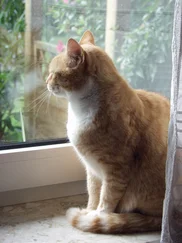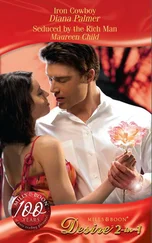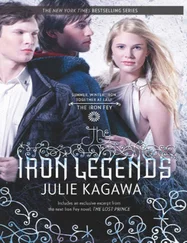'Good afternoon,' said the sister. She held up a key. 'We have come to fetch my sister's things. Florence.'
'Yes,' I said.
They let themselves into Florence 's room. After a while I followed. 'Is Florence all right?' I asked.
The sister, who had been unpacking a drawer, stood, up straight, breathing heavily. Clearly she relished this foolish question.
'No, I cannot say she is all right,' she said, 'Not all right. How can she be all right?'
The other woman, pretending not to hear, continued to fold baby-clothes. There was far more in the room than they could carry in two suitcases.
'I didn't mean that,' I said; 'but never mind. Can I ask you to take something to Florence from me?'
'Yes, I can take it if it is not big.' I wrote out a cheque.
'Tell Florence I am sorry. Tell her I am more sorry than I can say. 1 think of Bheki all the time.' 'You are sorry.' 'Yes.'
Another day of clear skies. Vercueil in a strangely excited state. 'So today is the day?' he asked. 'Yes,' I replied, stiffening against his indecent eagerness, on the point of adding: 'But what business is it of yours?'
Yes, I said: today is the day. Yet today has passed and I have not gone through with what I promised. For as long as the trail of words continues, you know with certainty that I have not gone through with it: a rule, another rule. Death may indeed be the last great foe of writing, but writing is also the foe of death. Therefore, writing, holding death at arm's length, let me cell you that I meant to go through with it began to go through with it, did not go through with it. Let me tell you more. Let me tell you that I bathed. Let me tell you that I dressed. Let me tell you that, as I prepared my body, some faint glow of pride began to return to it. Between waiting in bed for the breathing to stop and going out to make one's own end, what a difference!
I meant to go through with it: is that the truth? Yes. No. Yes-no. There is such a word, but it has never been allowed into the dictionaries. Yes-no: every woman knows what it means as it defeats every man. 'Are you going to do it?' asked Vercueil, his man-eyes gleaming. 'Yes-no,' I should have answered.
I wore white and blue: a light blue suit, a white House with a bow at the throat. I did my face carefully, and my hair. All the while I sat in front of the mirror I was trembling lightly. I felt no pain at all. The crab had stopped gnawing.
Luminous with curiosity, Vercueil followed me into the kitchen and prowled about while I was having breakfast. At last, irritated, unsettled, I burst out: 'Would you please leave me alone!' At which he turned away with a look of such childish hurt that I gave his sleeve a tug. 'I didn't mean that,' I said. 'But please sit down: you make me nervous when I need calm. I veer back and forth so much! At one moment I think: Let me hurry to put an end to it, to this worthless life. At the next I think: But why should I bear the blame? Why should 1 be expected to rise above my times? Is it my doing that my times have been so shameful? Why should it be left to me, old and sick and full of pain, to lift myself unaided out of this pit of disgrace?
'I want to rage against the men who have created these times. I want to accuse them of spoiling my life in the way that a rat or a cockroach spoils food without even eating it, simply by walking over it and sniffing it and performing its bodily functions on it. It is childish, I know, to point fingers and blame others. But why should I accept that my life would have been worthless no matter who held power in this land? Power is power, after all. It invades. That is its nature. It invades one's life.
'You want to know what is going; on with me and I am trying to tell you. I want to sell myself, redeem myself, but am full of confusion, about how to do it. That, if you like, is the craziness that has got into me. You need not be surprised. You know this country. There is madness in the air here.'
Throughout this speech Vercueil had worn the same tight, secretive little look. Now he said a strange thing: 'Would you like to go for a drive?'
'We can't go for a drive, Mr Vercueil. There are a thousand reasons why we can't.'
'We can see some sights, be back by twelve o'clock.'
'We can't go sightseeing in a car with a hole in the windscreen. It is ridiculous.'
'I'll take out the windscreen. It's just glass, you don't need it.'
Why did I give in? Perhaps what won me in the end was the new attention he was paying me. He was like a boy in a state of excitement, sexual excitement, and I was his object. I was flattered; in a distant way, despite all, I was even amused. Obscurely I may have felt something unsavoury in it, as in the excitement of a dog digging for carrion not buried deep enough. But I was in no condition to draw lines. What did I want, after all? I wanted a suspension. To be suspended without thought, without pain, without doubt, without apprehension, till noon came. Till the noonday gun boomed on Signal Hill and, with a bottle of petrol on the seat beside me, I either drove or did not drive past the chain and down the Avenue. But to be thoughtless till then; to hear birds sing, to feel the air on my skin, to see the sky. To live.
So I yielded, Vercueil wrapped a towel around his hand and broke out more of the glass till the hole was big enough for a child to climb through. I gave him the key. A push, and we were away.
Like lovers revisiting the scenes of their first declarations, we took the mountainside drive above Muizenberg. (Lovers!
What had I ever declared to Vercueil? That he should stop drinking. What had he declared to me? Nothing: perhaps not even his true name.) We parked at the same spot as before.
Now: feast a last time on these sights, I told myself, digging my nails into my palms, staring out over False Bay, bay of false hope, and southward over the bleak winter-waters of the most neglected of oceans.
'If we had a boat you could take me out to sea,' I murmured.
Southward: Vercueil and I alone, sailing till we reached the latitudes where albatrosses fly. Where he could lash me to a barrel or a plank, it did not matter which, and leave me bobbing on the waves under the great white wings.
Vercueil reversed on to the road. Was I wrong, or did the engine throb more sweetly in his hands than in mine?
'I am sorry if I am not making sense,' I said. 'I am trying my best not to lose direction. I am trying to keep up a sense of urgency. A sense of urgency is what keeps deserting me. Sitting here among all this beauty, or even sitting at home among my own things, it seems hardly possible to believe there is a zone of killing and degradation all around me. It seems like a bad dream. Something presses, nudges inside me. I try to take no notice, but it insists. I yield an inch; it presses harder. With relief I give in, and life is suddenly ordinary again. With relief I give myself back to the ordinary. I wallow in it. I lose my sense of shame, become shameless as a child. The shamefulness of that shamelessness: that is what I cannot forget, that is what I cannot bear afterwards. That is why I must take hold, of myself, point myself down the path. Otherwise I am lost. Do you understand?'
Vercueil crouched over the wheel like someone with poor eyesight. He of the hawk's-eye. Did it matter if he did not understand?
'It is like trying to give up alcohol,' I persisted. 'Trying and trying, always trying, but knowing in your bones from the beginning that you are going to slide back. There is a, shame to that private knowledge, a shame so warm, so intimate, so comforting that it brings more shame flooding with it. There seems to be no limit to the shame a human being can feel.
'But how hard it is to kill oneself! One clings so tight to life! It seems to me that something other than the will must come into play at the last instant, something foreign, something thoughtless, to sweep you over the brink. You have to become someone other than yourself. But who? Who is it that waits for me to step into his shadow? Where do I find him?'
Читать дальше












